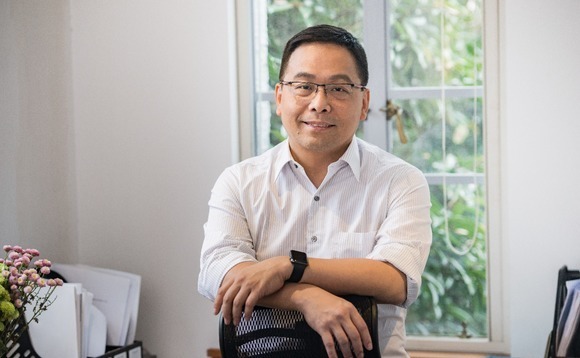
Fund focus: Yunqi reaffirms its enterprise focus

Yunqi Partners was the first Chinese GP dedicated to enterprise services and now claims to be the largest early-stage investor in the space. SaaS, in various forms, will account for the bulk of Fund III
In the space of a few days last month, three Chinese start-ups – autonomous driving specialist Deeproute.ai, smart robot manufacturer Keenon, and cross-border payments provider Xtransfer – closed new funding rounds and announced they achieved valuations in excess of $1 billion.
It amounts to a resounding endorsement of Yunqi Partners and its early-stage investment thesis focused on enterprise software and services: the VC firm led the first institutional round for each one between 2016 and 2019.
Other unicorns in the Yunqi portfolio include cloud-native database PingCap, home decoration software provider Kujiale, B2B trading platforms Baibu and XiaoPangXiong, and plastics recycling business Yingke Rejuvenate.
"We were the first VC firm to focus exclusively on the enterprise sector. For example, we never invest in consumer brands," says Yipin Ng (pictured), a managing partner at Yunqi, who co-founded the firm in 2014 with Michael Mao. They were previously partners at GGV Capital and IDG Capital, respectively.
"This focus is based on our expertise, and it has further enhanced that expertise. Today, we are the largest early-stage venture capital firm in the enterprise sector."
The firm has just closed its third US dollar-denominated fund at $300 million, beating a target of $200 million. The vehicle launched in June 2020 and existing investors supported a first close of $150 million two months later. The full LP base features endowments, foundations, pension funds, family offices, and asset managers from the US, Asia, and Europe.
Yunqi, which raised $150 million for its second fund in 2018, has no plans to gravitate from early to growth-stage rounds, even as its firepower increases.
"We will make follow-up investments in select portfolio companies, but we have no intention to expand into the growth-stage space because it requires different skill sets," Ng explains. "In the growth stages, calculations and judging valuations become more important, but what we are good at is understanding technologies and business models when they are not yet proven."
Within China's enterprise technology sector, software-as-a-Service (SaaS) is the emerging hotspot, following rapid corporate adoption in the wake of COVID-19. Yunqi has heavily invested in the space, with Ng noting that it taps into a government-led push towards digitalization. He believes China's innate complexities and rapid 5G implementation will see it develop killer apps ahead of the US.
SaaS has been sliced and diced in different ways, with platform-as-a-service (PaaS) and infrastructure-as-a-service (IaaS) used to capture product offerings that go beyond a single layer of software. They are compared to basic utilities like water and electricity, while SaaS applications are the fine decoration.
Yunqi defines SaaS more broadly as businesses that can be tracked based on annual recurring revenue (ARR) and net dollar retention rate (NDR). These are globally accepted measurements, but China deviates from the norm in that cloud-based, highly standardized offerings don't work as well. Rather, start-ups often achieve critical mass with a SaaS-customization hybrid model.
For example, some local companies deliver on-premises solutions because of a reluctance among Chinese corporate customers to store sensitive data on servers outside of their control. Others modify enterprise software to meet the specific needs of the end-user, with new modules or features bolted on top of a basic offering.
"We are starting to see many successful hybrid models," says Ng. "Kujiale started with a standardized SaaS solution for home interior designers. Now it has a second leg of growth selling into the office and retail space design and renovation space, where large corporations ask for additional customized features."
Two more Yunqi portfolio companies, Baibu and Smart Fabric, are pursuing another model that combines SaaS with a transactional element. Their digitalization tools connect with B2B marketplaces through which corporates can acquire customers, creating a direct and measurable correlation between software and increased revenue.
"Because it is B2B and businesses are regular buyers, transactions are recurring in nature and you can calculate ARR and NDR like in SaaS," explains Ng.
PaaS and IaaS are categorized under a third model that brings together SaaS and infrastructure. These companies are often referred to as providers of artificial intelligence-enabled software or open-source software. There is scope for global expansion, with PingCap now serving 1,000 corporate customers across the US, Europe, Japan, and Southeast Asia.
"This is a significant development in that China's software start-ups are no longer aiming to be import replacements, they are developing global ambitions," says Ng.
Latest News
Asian GPs slow implementation of ESG policies - survey
Asia-based private equity firms are assigning more dedicated resources to environment, social, and governance (ESG) programmes, but policy changes have slowed in the past 12 months, in part due to concerns raised internally and by LPs, according to a...
Singapore fintech start-up LXA gets $10m seed round
New Enterprise Associates (NEA) has led a USD 10m seed round for Singapore’s LXA, a financial technology start-up launched by a former Asia senior executive at The Blackstone Group.
India's InCred announces $60m round, claims unicorn status
Indian non-bank lender InCred Financial Services said it has received INR 5bn (USD 60m) at a valuation of at least USD 1bn from unnamed investors including “a global private equity fund.”
Insight leads $50m round for Australia's Roller
Insight Partners has led a USD 50m round for Australia’s Roller, a venue management software provider specializing in family fun parks.








